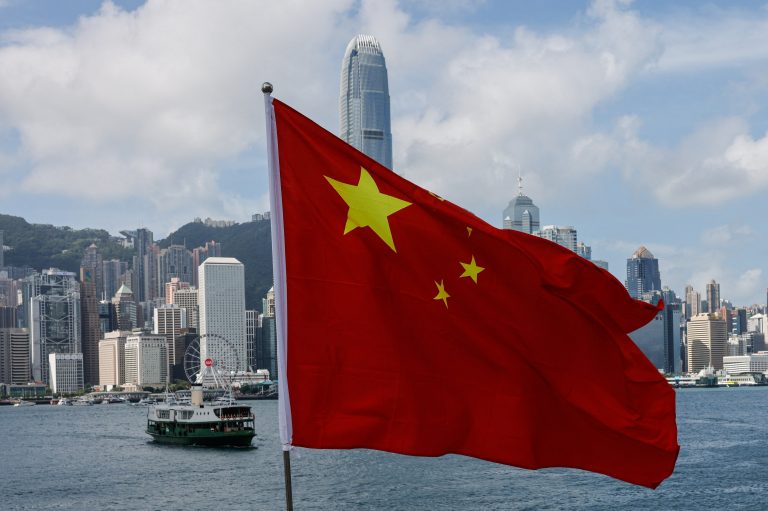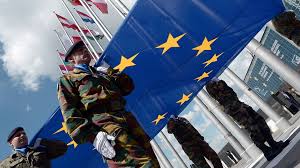
South African President Ramaphosa Delivers His Annual State of the Nation Address | N18G
South African President Cyril Ramaphosa took centre stage at Parliament in Cape Town to deliver his much-anticipated annual State of the Nation Address (SONA). The event—steeped in national traditions and legislative protocols—saw members of the National Assembly, the National Council of Provinces, judiciary heads, and various dignitaries converging to hear the President outline his administration’s agenda for the coming year. This SONA, which marks nearly seven years of Ramaphosa’s presidency, addressed an array of issues, including South Africa’s pressing energy challenges, the country’s infrastructure push, critical social interventions, and the broader continental context of peace and security.
Honouring Fallen Soldiers in the DRC
President Ramaphosa began on a sombre note, dedicating his opening remarks to the memory of 14 South African soldiers killed in the Eastern Democratic Republic of the Congo (DRC). The soldiers were part of a peacekeeping mission under the auspices of the Southern African Development Community (SADC) and the United Nations Organisation Stabilisation Mission in the DRC (MONUSCO). According to reports by SABC News (2025), the ambush occurred in a volatile area near the Ugandan border.
“They lost their lives so the guns on our continent may be forever silenced,”
— President Ramaphosa, State of the Nation Address, 2025
Calling the soldiers “heroes” and “sons of the soil,” the President ordered that the national flag be flown at half-mast for one week in their honour. This poignant tribute underlined the sense of shared responsibility that South Africa feels for peace and stability across the African continent—a role South Africa has embraced since it transitioned to democracy in 1994.
The Freedom Charter at 70
A significant historical thread woven into the address was the commemoration of the 70th anniversary of the Freedom Charter, adopted in Kliptown on 26 June 1955. Drafted during the Congress of the People by the African National Congress (ANC) and its allies, the Freedom Charter set out a vision of a non-racial, just, and prosperous South Africa long before the end of apartheid.
President Ramaphosa lauded the Charter’s core tenets—especially those advocating shared wealth, equal rights, and land redistribution. He underscored that these guiding principles remain as relevant now as they were 70 years ago, providing the basis for crafting meaningful social and economic policies.
Economic Reforms and Growth
Against the backdrop of high unemployment—recently measured at approximately 32.9% by Stats SA (2024)—Ramaphosa’s message on economic recovery was cautiously optimistic. The President pointed to:
1. Inclusive Growth and Job Creation
Stressing the importance of “inclusive growth,” the President underscored the need for public-private collaboration. He noted that partnership with businesses, labour, and community organisations is critical to creating jobs, bridging the income gap, and modernising industries. According to data from the National Treasury Budget Review (2024), the government is projecting a modest but steady GDP growth rate of 1.8% for the upcoming year, contingent on a more stable electricity supply and improved investor confidence.
2. Driving Investment
Ramaphosa cited progress in attracting foreign direct investment (FDI), with a particular focus on sectors such as technology, manufacturing, and mining. In his view, the reforms undertaken in network industries—energy, telecommunications, and transportation—are starting to yield dividends.
“We must finish the work we started, ensuring our network industries unlock investment opportunities,”
— President Ramaphosa
3. Transformation Fund
Central to the administration’s economic strategy is a new Transformation Fund earmarked at R20 billion annually over five years. Its prime goal: to provide capital support to Black-owned enterprises, women-owned businesses, youth-led ventures, and start-ups involving persons with disabilities. This fund, the President argued, is a decisive measure to address structural inequities within the country.
Infrastructure: Rebuilding the Nation
One of the President’s most substantial announcements was the allocation of R1 trillion in infrastructure investment over the next three years. This package aims to revitalise roads, railways, ports, water systems, and other critical national infrastructure. The government’s Infrastructure Fund has already approved projects worth R38 billion, focusing on sectors such as water management, sanitation, and energy.
The President explained that efficient infrastructure is crucial not just for economic growth but also for improving essential services in historically neglected areas. According to him, functional transportation corridors will also facilitate trade across the African Continental Free Trade Area (AfCFTA), ultimately boosting intra-African commerce.
Municipal Reforms and Basic Services
President Ramaphosa was candid about the state of many municipalities, acknowledging that “basic services collapse” has led to irregular water supply, uncollected refuse, and compromised sewage systems in parts of the country. As set out in the SONA transcript (2025) and supported by evidence from the Auditor-General’s reports (2024), a combination of poor revenue management, inadequate technical skills, and corruption have severely hindered service delivery at the local level.
A key remedial measure highlighted is the introduction of professionally managed, ring-fenced utilities for water and electricity services. Intended to ensure operational and financial sustainability, these utilities are expected to reinvest revenue into maintaining infrastructure and delivering reliable services.
Energy Security and the Just Energy Transition
No topic has dominated South African discourse more than electricity supply. After years of debilitating load shedding, the President declared progress under the Energy Action Plan. He cited a reported “300 days without load shedding since March 2024,” although the speech also acknowledged that the system remains fragile, as two days of recent interruptions indicated.
Looking ahead, Ramaphosa reaffirmed the government’s commitment to a Just Energy Transition. With over US$13 billion pledged by international partners and an influx of private capital, South Africa aims to reduce reliance on coal while ensuring that communities dependent on coal-mining industries are not left behind. Citing climate change pressures, the President pledged that the transition “will proceed at a pace and scale that our country can afford,” emphasising the need to balance environmental responsibilities with socio-economic realities.
Education and Health
1. Quality Education
Ramaphosa reinforced the plan to improve literacy and numeracy, especially at the foundation phase, through mother-tongue-based bilingual education. Citing the success of the Funza Lushaka Bursary Scheme, the President said more incentives will be provided for foundation-phase teachers, referencing studies by the Department of Basic Education showing that early literacy in a mother tongue significantly enhances long-term academic performance.
2. National Health Insurance (NHI)
The President set out a phased approach to implementing the NHI, starting with a single electronic health record system, a ministerial advisory committee on health technologies, and a robust accreditation framework for providers. Critics, including certain medical aid schemes, have voiced concerns regarding the financial sustainability of the NHI. However, Ramaphosa insisted that the scheme would reduce inequalities by granting all South Africans access to quality healthcare services under one roof.
Addressing Poverty and Social Challenges
At least 28 million South Africans currently rely on some form of social assistance, including child support grants, old-age pensions, and the Social Relief of Distress (SRD) grant. Stressing the importance of this safety net, the President acknowledged that while these grants stave off extreme poverty, they do not substitute for meaningful employment. He reiterated the government’s intention to use the SRD grant as a basis for more permanent income-support measures for the unemployed.
Additionally, Ramaphosa vowed to adopt the National Strategy to Accelerate Action for Children, focusing on eradicating child malnutrition and protecting children from abuse.
Good Governance, Policing, and Corruption
On corruption, the President spoke of reinforcing the InvestigatingDirectorate, now a permanent structure within the National Prosecuting Authority (NPA). This unit specifically targets corruption, building on the findings of the Zondo Commission into State Capture. The aim is to prosecute high-level offenders, recover misappropriated funds, and strengthen public trust in governmental institutions.
Regarding safety and security, Ramaphosa announced a plan to expand the detective service by 4,000 personnel. This measure aligns with recommendations from community policing forums, which emphasise effective investigations and convictions as a deterrent to criminals. The President also spotlighted the adoption of modern technologies and analytics, referencing international examples where digitised policing significantly improved case resolution rates.
Foreign Policy and Continental Commitment
Reiterating South Africa’s core principle of pan-African solidarity, Ramaphosa pledged continued support for peace efforts on the continent. He emphasised the country’s peace-building role not only in the DRC but in other troubled regions like Mozambique’s Cabo Delgado Province. The President also reaffirmed South Africa’s stance on global issues, including the longstanding Israeli-Palestinian conflict and the importance of reforming the UN Security Council.
“Our future prosperity is bound to the prosperity of the African continent,”
— President Ramaphosa
He stressed that the African Continental Free Trade Area (AfCFTA) offers an unparalleled opportunity for industrial and socio-economic development and that Africa must solidify its bargaining power on the global stage.
Conclusion: A Call for National Dialogue
President Ramaphosa concluded his address by calling for a National Dialogue—an inclusive forum for all citizens to shape South Africa’s trajectory for the next 30 years. Inspired by the spirit of the 1955 Congress of the People, where the Freedom Charter was conceived, he urged South Africans to build on the triumphs of democracy through constructive engagement rather than partisan squabbles.
“We must chart this path in a world that is rapidly changing. … Let us work together to ensure that our children and grandchildren inherit a country that we have helped build, not destroy,”
— President Ramaphosa
Despite ongoing challenges—ranging from energy constraints to socio-economic disparities—the President’s message was one of tempered optimism and moral resolve. Indeed, many South Africans yearn for a future where stable governance, inclusive growth, reliable services, and social justice converge to fulfil the promise first articulated in the Freedom Charter 70 years ago.
As the nation reflects on the promises and pledges of this State of the Nation Address, the prevailing sentiment is that partnership—between government, the private sector, civil society, and communities—will determine how South Africa navigates its complexities and capitalises on its rich potential. By acknowledging the harsh realities of poverty, unemployment, and inequality, and providing tangible solutions to address them, President Ramaphosa’s 2025 SONA stands as both an urgent wake-up call and a rallying cry for collective action.
In the end, many hope that the memory of the 14 soldiers who died for peace in the DRC will serve as a poignant reminder of what South Africa can achieve when it remains united in purpose and resolute in principle. May their sacrifice inspire a reinvigorated dedication to the values of democracy, justice, and human dignity—values that remain at the heart of the nation’s Constitution and the very soul of its people.
Aric Jabari is the Editorial Director of the Sixteenth Council.



